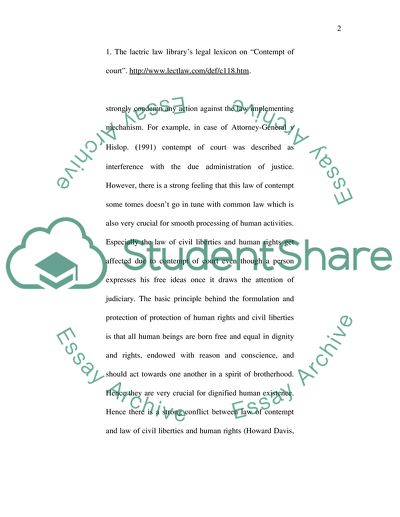Cite this document
(“Law of Civil Liberties & Human Rights: Contempt of Court Essay”, n.d.)
Law of Civil Liberties & Human Rights: Contempt of Court Essay. Retrieved from https://studentshare.org/law/1705548-law-of-civil-liberties-human-rights-contempt-of-court
Law of Civil Liberties & Human Rights: Contempt of Court Essay. Retrieved from https://studentshare.org/law/1705548-law-of-civil-liberties-human-rights-contempt-of-court
(Law of Civil Liberties & Human Rights: Contempt of Court Essay)
Law of Civil Liberties & Human Rights: Contempt of Court Essay. https://studentshare.org/law/1705548-law-of-civil-liberties-human-rights-contempt-of-court.
Law of Civil Liberties & Human Rights: Contempt of Court Essay. https://studentshare.org/law/1705548-law-of-civil-liberties-human-rights-contempt-of-court.
“Law of Civil Liberties & Human Rights: Contempt of Court Essay”, n.d. https://studentshare.org/law/1705548-law-of-civil-liberties-human-rights-contempt-of-court.


